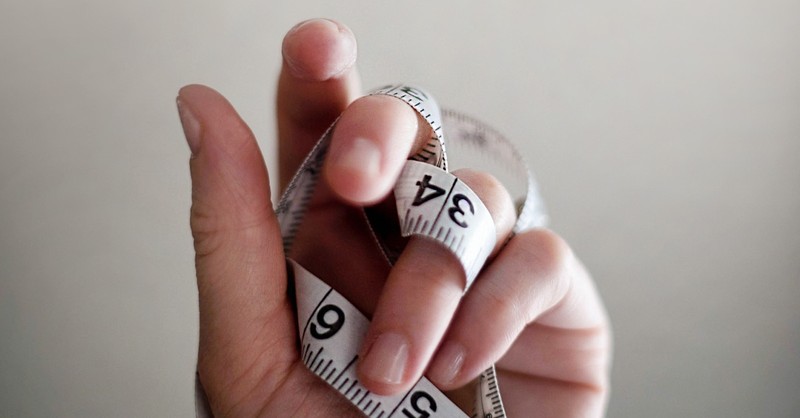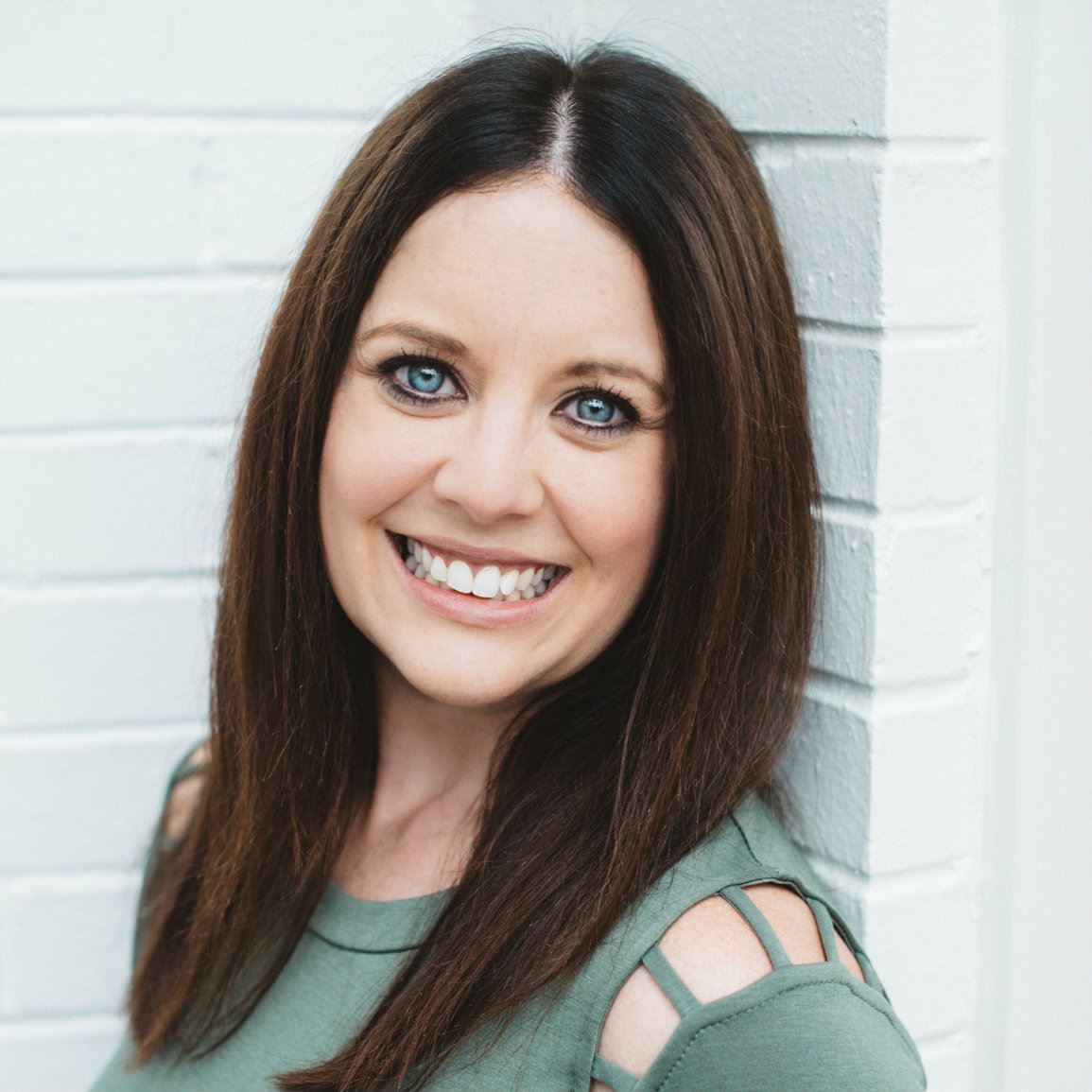
I don’t know a single woman who is content with her body. There’s always something about ourselves that we want to change, isn’t there?
Our height, our hair color, our teeth, our freckles or lack thereof, our face shape, our skin color, our cellulite and stretch marks, our chest size, our weight or measurements… it truly never ends. And just when we think we have one “problem area” of our bodies “under control,” we find something else to obsess over and try to “fix.”
Photo Credit: ©Getty Images/Tero Vesalainen

The Never-Ending Battle
The fact that we use words like “fix” and “problem area” about our bodies in the first place says a lot about our culture and the damaging mindsets being embedded from an early age.
It’s an exhausting battle. Advertisements plague our social media and our televisions, further ingraining the lie that we aren’t enough, but we could be if we just purchased “X.” Whether “X” is a bottle of spray tan, face cream, or extension lashes, we think something is wrong with us if we don’t look like the models advertising the products.
Then we go even further with our quest for unending beauty, injecting chemicals into our skin to tighten it and paying for surgeries that will enhance this, reduce that, or lift all of it.
The media tells us our nails are too short, our skin is too dry, too oily, too uneven, or too wrinkly, our stomachs are too marred, our chest too small, and our lashes too bland. Our hair is too straight, too short, or too curly. And our rear end is either too big or too small—but hey, if you join this gym or use that piece of equipment, all our problems will be solved! (Insert eye roll here.)
It’s ridiculous and consuming. Where will it end?
The Original Lie
Spoiler alert—it won’t.
That’s because the base of these lies constantly parading before us stem from an age-old deception. A lie told from the beginning of time—and one directed straight into the heart of the very first woman created.
Obviously, I’m not declaring the companies advertising these products as demonic. Most of them are just trying to make money, which is a different conversation. But I absolutely believe these industries are used by the enemy of our souls to convince women they are worthless, and to distract them from their true calling.
There’s clearly nothing sinful in using a face cream at night or a conditioning rinse in your hair. Buy the makeup. Spray the tan on, if you want. If you like using various beauty products and can do so in a way that isn’t mentally, emotionally, or spiritually unhealthy, go for it, sister! But keep your guard up. There are a million voices out there telling you it’s not enough, that you’re so close but just not quite pretty, yet. And those voices are out to steal, kill, and destroy.
Photo Credit: ©Unsplash/Jennifer Burk

Did God Really Say…?
Satan loves to twist what God created for good—things like beauty—and turn it into evil. He approached Eve in the garden and started a conversation about all the good trees and fruit God had given the world’s first power couple. Look at what the serpent said in Genesis 3:1, outlined below in several different translations.
“Now the serpent was more crafty than any other beast of the field that the Lord God had made. He said to the woman, “Did God actually say, ‘You shall not eat of any tree in the garden’?” (ESV)
“Did God really say…” (NIV)
“Can it really be that God has said…” (Amplified)
“Did God actually say…” (ESV)
“Hath God said…” (KJV)
“Has God indeed said…” (NKJ)
“Has God really said…” (NASB)
The context of Genesis 3:1 is clearly regarding the fruit of the trees, but the lie is encompassing and the same. Remember, Satan often will stick to what works—and that’s to make women doubt what God really says. For Eve, it was about the rules of the garden. What is it about for you?
Your worth? Your value? Your pants size? The number on the bathroom scale?
What God Declared Good
To combat the lies, we first must recognize it is one. So, it’s crucial to look back at what God actually said about Eve when He created her for Adam. Do you remember? “Then the Lord God said, ‘It is not good that the man should be alone; I will make him a helper fit for him.’” (Genesis 2:18, ESV)
He called her helper.
That might not seem all that fascinating, until you get to the Hebrew definition. Helper in this context translates to ezer. And get this—ezer doesn’t mean helpmate in the way you might think, which we naturally tend to assume as more of a servant type role. Rather, ezer is used in the Bible 21 times, sixteen of which refer to the way God Himself helps, saves, and rescues. It’s a term ripe with military implication, with strength, and with power!
Does that sound like a woman in desperate need of extra moisturizer and extensions?
I don’t know about you, but I don’t want to spend my time falling for more of the enemy’s lies this side of Eden. I’d much rather focus my energy and efforts into living out the helper role God has specifically created me for. Satan’s lies might be loud, but God’s Words are true.
Photo Credit: ©Getty Images/Marjan Apostolovic

Turning Back to What Matters
It’s easy to read this article and agree, but tomorrow when your “fat pants” are snug or you weigh yourself or you find yet another gray hair or wrinkle, it’s not as easy to embrace. There are some elements to aging and maturing that we simply must accept. There are inescapable truths.
We are getting older, every day. So is creation. We can’t fight this—there is no fountain of youth. Instead, we should normalize aging with grace and class as a godly, Proverbs 31-type woman would do.
We should recognize that God is telling the truth in Proverbs 31:30: "Charm is deceitful, and beauty is vain, but a woman who fears the LORD is to be praised."
And we must believe God wasn’t lying when He inspired David to write Psalm 139:13-18.
“For you created my inmost being; you knit me together in my mother’s womb. I praise you because I am fearfully and wonderfully made; your works are wonderful, I know that full well. My frame was not hidden from you when I was made in the secret place, when I was woven together in the depths of the earth. Your eyes saw my unformed body; all the days ordained for me were written in your book before one of them came to be. How precious to me are your thoughts, God! How vast is the sum of them! Were I to count them, they would outnumber the grains of sand—when I awake, I am still with you."
In the book Breaking Free of Body Shame, author Jess Connolly points out that our bodies are good because God said so—that they are not meant to be projects to continually work on, then present to the world for evaluation.
And oh, isn’t that what we do? We join a fitness program or start a diet and tell the world so we can stay motivated and start posting “after” pics as soon as possible. Then we inevitably dive into shame and condemnation when our “after” isn’t as dramatic as we’d hoped, or we fall off that proverbial wagon and binge eat Ben & Jerry’s while watching yet another episode of The Office.
We’re striving for man’s approval (note, for some of us, that might mean “man” in the generic, humankind sense, and for others, it might mean “men” in the specific sense of male approval and validation of our beauty) yet it’s never enough when we get it. We always strive for more.
That’s because we were never meant for our own glory. We were meant to give glory to God.
Are your thoughts toward your body God-honoring, or creation-berating? Are you doing your best to take care of the temple God gave you, so that you could do the good works planned since before time began? (Ephesians 2:10) Or are you more focused on vanity and the kind of beauty that fades?
It comes down to this—which voice are you going to listen to? The enemy’s voice casting shade and doubt on all that is true? Or the voice of the Lord, the very God of the universe who created you in His image, and named you ezer?
Photo Credit: ©GettyImages/Tutye
Originally published Tuesday, 03 August 2021.










